My interview with Dr. Heather Paulson airs today as part of Heal Your Spirit, Heal Your Body, and what an interview it is. We get into many topics including the five layers of healing and how healing on all of them impacts our holistic health and wellbeing. One of the other subjects we touch on is supplements and natural compounds that support mental and emotional wellbeing. I thought it would be a great companion to the interview to write up a post that goes into all of Dr. Paulson’s suggestions in more detail and adds of few of my own that I have found helpful. If you have any of your own that you would like to add, post in the Facebook group or contact me here. Let’s get into it!
**Disclaimer: there is always the possibility of adverse drug interactions with supplements/natural compounds. Before beginning any new supplement or natural compound, you should always consult with your healthcare team, whether conventional or alternative, to determine if it is a good fit for you and your current medications.**
5-HTP

5-HTP (or 5-Hydroxytryptophan) sounds like something created in a lab by scientists looking for the next best food preservative, but it is actually an amino acid that your body naturally produces. The “tryptophan” part of its name may have tipped you off to its function in our bodies: your body uses it to produce serotonin, a messenger between nerve cells that is sometimes called the “happy chemical” because it contributes to wellbeing and happiness [1].
Low serotonin levels have been associated with “[…] depression, anxiety, sleep disorders, weight gain and other health problems” [2]. Therefore, boosting your levels of 5-HTP, and serotonin by proxy, can have a number of beneficial effects including the lessening of depression and anxiety and improving sleep by also helping to increase melatonin levels.
One study found that in research participants with panic disorders, “l-5-Hydroxytryptophan significantly reduced the reaction to the panic challenge in panic disorder patients, regarding subjective anxiety, panic symptom score and number of panic attacks, as opposed to placebo” [3]. When it comes to sleep, a 2018 study used caffeine to keep mice awake and then administered 5-HTP and another amino acid (GABA), finding that “[…] individually administered and combined GABA/5-HTP significantly increased the total sleeping time in the caffeine-induced sleepless ICR mice” [4]. Although there is always more research needed when it comes to natural substances and supplements, the research that is out there shows promise.
L-Glycine

L-glycine is another amino acid produced naturally by our bodies. It helps with things like the creation of proteins, the maintenance of tissues, and the production of important substances in the body such as hormones and enzymes [5].
When it comes to mental and emotional health, l-glycine has a clear benefit to the brain and to sleep. Glycine has a calming effect on the brain, which helps to improve overall sleep quality. One study found that, “Glycine improved subjective sleep quality and sleep efficacy (sleep time/in-bed time), and shortened [sleep test] latency both to sleep onset and to slow wave sleep without changes in the sleep architecture. Glycine lessened daytime sleepiness and improved performance of memory recognition tasks” [6]. In our interview, Dr. Paulson mentioned that l-glycine is particularly good for feelings of anxiety and fear because of these calming effects, so if you are experiencing these emotions, this might be a good one to talk to your healthcare team about.
Even outside of mental and emotional support, l-glycine might be a good thing to add to your protocol. It has several protective effects in your body including, “[…] anti-inflammatory, immunomodulatory and direct cytoprotective [cell-protective] actions. Glycine acts on inflammatory cells such as macrophages to suppress activation of transcription factors [which they use to multiply] and the formation of free radicals and inflammatory cytokines” [7]. L-glycine also has many other benefits including being heart protective and improving the body’s natural production of the powerful antioxidant glutathione [5].
SAM-e

SAM-e (or S-adenosyl methionine) is a common coenzyme (a small, organic, non-protein molecule that carries chemical groups between enzymes [8]), that plays a significant role in the production of neurotransmitters such as dopamine, serotonin, and acetylcholine [9]. Lowered levels of SAM-e, therefore, may result in a correlated decrease in these neurotransmitters. When it comes to depression, “Each type of neurotransmitter can carry a different message and plays a unique role in creating an individual’s brain chemistry. Imbalances in these chemicals may contribute to mental health conditions such as depression”[10]. Stimulating the production of these neurotransmitters is likely what accounts for the antidepressant effects of SAM-e.
SAM-e is quite well studied, and most of the results confirm a positive correlation between SAM-e the lessening of depression. On the whole, studies support that the administration of SAM-e is more effective than that of a placebo and that it is about as equally effective as tricyclic antidepressants [10]. In one double-blind study conducted with patients who were showing resistance to antidepressants, it was found that “[…] response and remission rates were higher for patients treated with adjunctive SAMe (36.1% and 25.8%, respectively) than adjunctive placebo (17.6% versus 11.7%, respectively). […] These preliminary results suggest that SAMe can be an effective, well-tolerated, and safe adjunctive treatment strategy for SRI nonresponders with major depressive disorder and warrant replication” [11]. Quite an impressive antidepressive effect was observed, especially since these were patients showing resistance to medication, and provides strong evidence in support of using SAM-e as a part of your protocol for emotional and mental health.
Passionflower
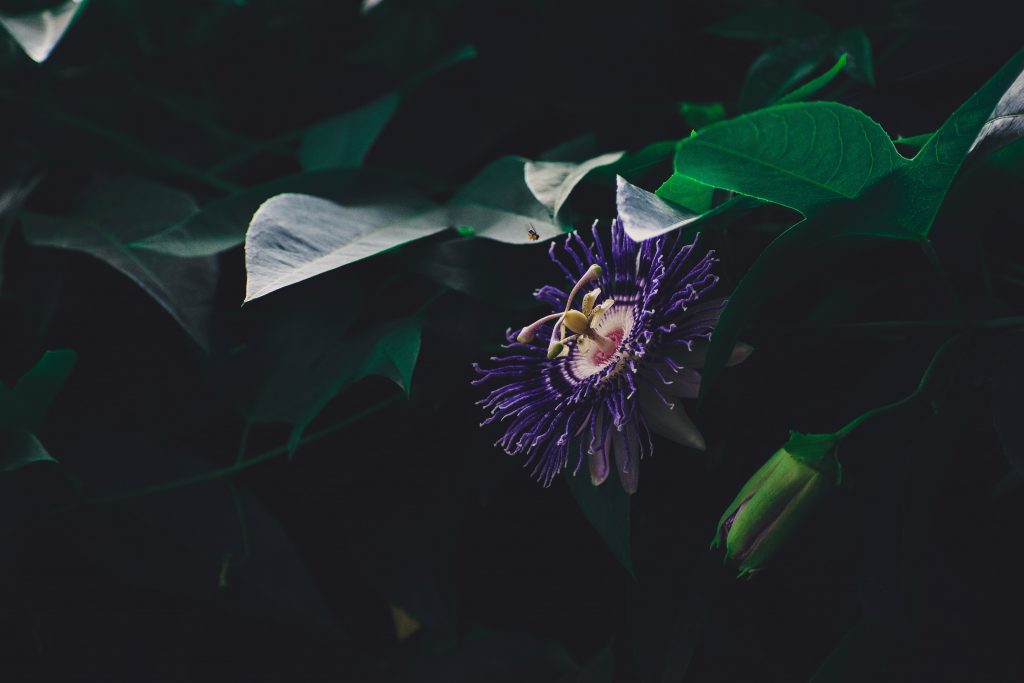
Passionflower is one of my absolute favourites on this list and one that I use often. It is very gentle and produces a calming effect. I describe it as “taking the edge off”. Taking a single capsule will reduce anxiety without making you drowsy, but with a double dose, passionflower can also help you gently drift off to sleep. I find it helps to quiet my racing mind, which is almost always the culprit when I can’t fall asleep!
There are many varieties of passionflower (which is, as it sounds, a flowering plant that produces beautiful purple blooms, pictured above), but it is passiflora incarnata that is most often linked to helping with anxiety and insomnia. As usual, more research is needed, but early studies have shown promising results. These studies show that passionflower may work by increasing the production of GABA, an amino acid that helps to lower brain activity and thereby asserts a relaxing effect [12]. This may account for the quieting of my mind that I experience when I take it.
Another study on passionflower and anxiety found that it was helpful for reducing anxiety in patients just before undergoing surgery. “The NRS anxiety scores were significantly lower in the passiflora group than in the control group (P < 0.001). […] In outpatient surgery, administration of oral Passiflora incarnata as a premedication reduces anxiety without inducing sedation” [13]. And it’s this lack of sedation that is one of the nicest things about passionflower: you can take it during the day to take the edge off of your anxiety without having to worry about falling asleep at your desk! I highly recommend this one and it is considered to be generally safe, but, like anything else I discuss, check with your doctor or naturopath first before starting anything new.
Milky Oat Seed

“Milky what??”, you might be saying, and I wouldn’t blame you! It sounds weird, but this natural compound (often taken as a tincture of the extract) has some really wonderful effects. Milky oats are the tops of common oats that are harvested when they are in their milky stage, a point at which white liquid is excreted when they are squeezed, giving them their name. This happens before the seeds harden into the grain that we eat as oatmeal and flour [14].
There are many benefits that milky oat seed offers when it comes to mental and emotional support. Oat seed infusions help to “[…] mellow the mood, ease anxiety, combat the effects of daily stress, and resolve sleeplessness” [14]. Additionally, a study from 2015 found that oat extract improved cognitive function in participants, increasing their speed at assessment tasks, increasing word recall, and causing memory span improvements, and that the optimal dose is at or below 800mg [15].
Dr. Paulson labelled milky oat seed her favourite natural compound for mental and emotional support, and she described it as like being wrapped in a warm, comforting blanket. It sounds so lovely! The next time I do a supplement order I will be getting some, so I will let you know my thoughts on it in the FB group.
CBD
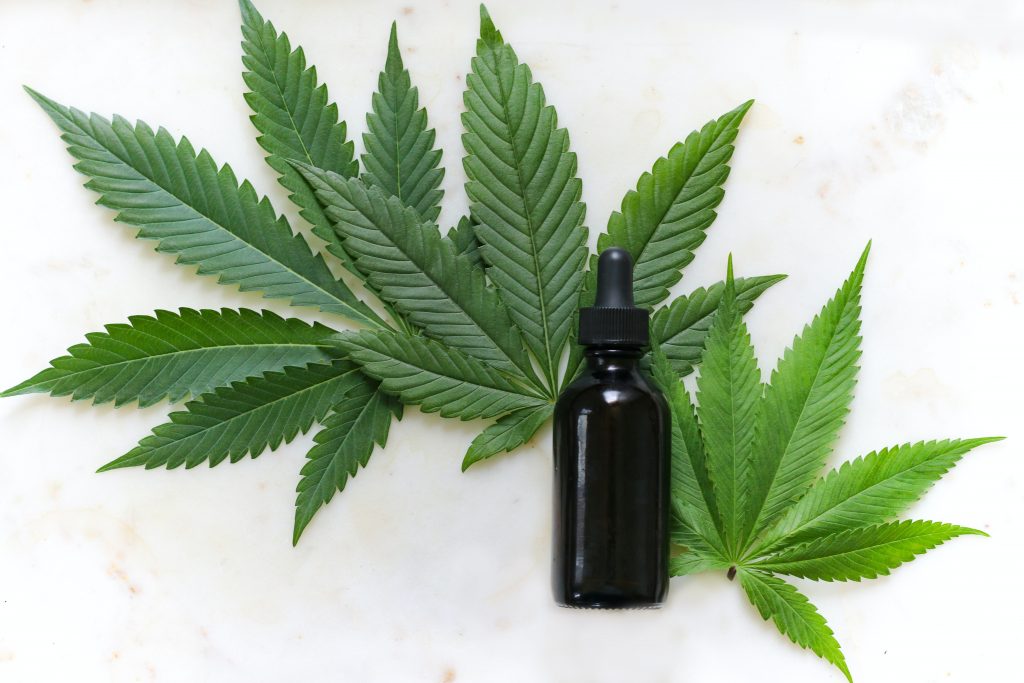
We are learning more and more about cannabis and its medicinal benefits. The two main cannabinoids in cannabis are CBD (cannabidiol) and THC (tetrahydrocannabinol), THC being the psychoactive component that produces a “high” and CBD having no psychoactive effects. So, if you are concerned about feeling stoned, if you stick with straight CBD you won’t feel any of those effects.
CBD has been researched for its positive effects on a wide range of issues, and it has been noted for its benefits when it comes to pain, seizures, depression, anxiety, neuroprotection, and sleep. Exactly how it has an effect on anxiety and depression is still not fully understood, but research suggests that it is due to its activity on CBD receptors in the body, the same receptors that are affected by endorphins after exercise to create the “runner’s high” that is so often talked about. Because they act on the same receptors, it is thought at this time that this could be the mechanism by which it works to reduce anxiety and depression [16].
Studies have been done that suggest CBD helps to improve the duration of sleep and that it lowers cortisol levels in blood plasma, something that is very important to our overall health and one of the main reasons why managing stress is so critical to avoiding chronic disease like cancer and heart disease. In a study published just this year, with the administration of CBD in doses ranging from 25mg to 175 mg, “Anxiety scores decreased within the first month in 57 patients (79.2%) and remained decreased during the study duration. Sleep scores improved within the first month in 48 patients (66.7%) but fluctuated over time. In this chart review, CBD was well tolerated in all but 3 patients” [16]. Promising results for those suffering from these issues, which many of us who have gone through or are going through cancer experience.
It is important to note that large doses (300mg or more) did result in sedative effects for some participants of various studies, although the literature shows that long-term doses of 10mg-400mg do not produce toxic effects and that doses up to 1500mg have been well tolerated [16]. Depending on where you live, this one might not be available to you, but if not from cannabis, CBD from hemp is legal in most places, so you could give that a go.
Teas and Essential Oils
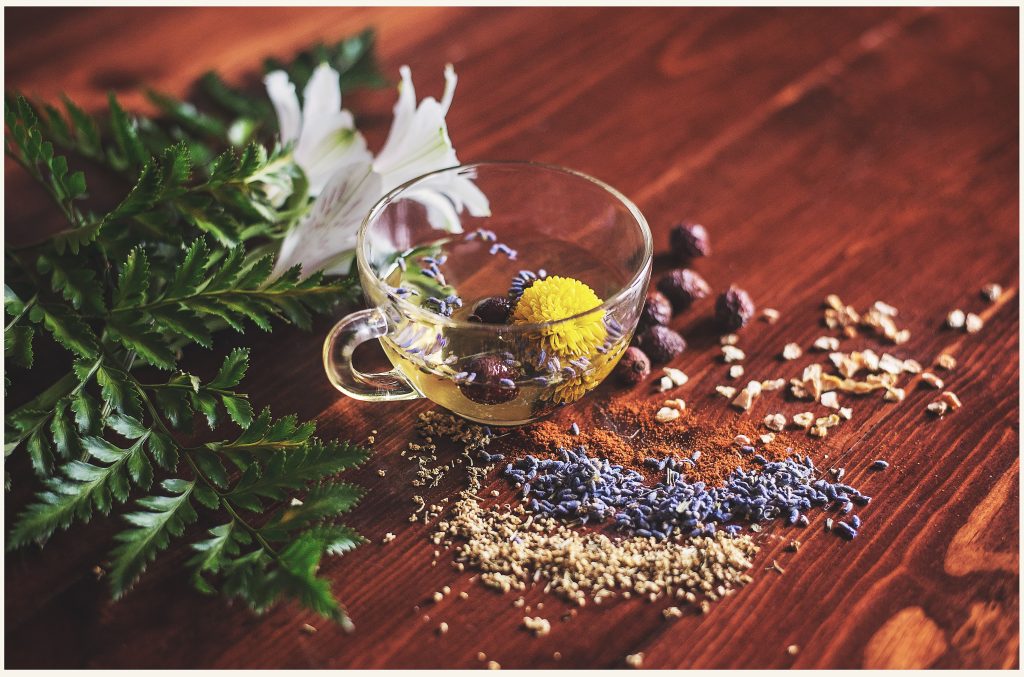
There are many gentle teas and essential oils that can be very calming. The most common include:
- Catnip tea
- Camomile tea
- Lemon balm tea and essential oil
- Lavender tea and essential oil
All of these have calming, relaxing, and anti-anxiety effects, though my personal favourite is lavender oil and tea. I carry a little bottle of lavender essential oil around in my purse with me and find it instantly notches down my anxiety and stress when inhaled. I sometimes rub a little on my wrists or temples too, which is lovely 🙂 I also highly recommend getting a diffuser and using it with combinations of calming essential oils. I love lemon, lavender, and peppermint together. I have the NOW Ultrasonic USB Diffuser, which I really like. It wasn’t super expensive, it works well, is lightweight, and you can plug it into any USB port or cube to use it (even your computer!), so you can take it anywhere.
…
Like with so many things when it comes to the natural world of medicine, there are a hundred different options for supporting your mental and emotional health. The best thing in any aspect of this vein of healing is to do your reading, check in with your healthcare team, and then try things out. See what works for your body and what doesn’t; it will know.
Happy Healing ❤️
References
- “Serotonin: Facts and Uses” – https://www.medicalnewstoday.com/kc/serotonin-facts-232248
- “5 Science-Based Benefits of 5-HTP” – https://www.healthline.com/nutrition/5-htp-benefits
- “Acute l-5-hydroxytryptophan administration inhibits carbon dioxide-induced panic in panic disorder patients” – https://www.sciencedirect.com/science/article/abs/pii/S0165178102002627
- “Two combined amino acids promote sleep activity in caffeine-induced sleepless model systems” – https://www.ncbi.nlm.nih.gov/pmc/articles/PMC5974066/
- “Top 9 Benefits and Uses of Glycine” – https://www.healthline.com/nutrition/glycine#section4
- “Glycine ingestion improves subjective sleep quality in human volunteers, correlating with polysomnographic changes” – https://link.springer.com/article/10.1111/j.1479-8425.2007.00262.x
- “L-Glycine: a novel anti-inflammatory, immunomodulatory, and cytoprotective agent.” – https://www.ncbi.nlm.nih.gov/pubmed/12589194
- “Biochemistry/Enzyme/Cofactors” – https://en.wikibooks.org/wiki/Structural_Biochemistry/Enzyme/Cofactors
- “S-Adenosylmethionine (SAMe) for Depression: What Does the Evidence Say?” – https://psychopharmacologyinstitute.com/section/s-adenosylmethionine-same-for-depression-what-does-the-evidence-say-2066-4181
- “The Chemistry of Depression” – https://www.verywellmind.com/the-chemistry-of-depression-1065137
- “S-adenosyl methionine (SAMe) augmentation of serotonin reuptake inhibitors for antidepressant nonresponders with major depressive disorder: a double-blind, randomized clinical trial.” – https://europepmc.org/abstract/med/20595412
- “The Calming Effects of Passionflower” – https://www.healthline.com/health/anxiety/calming-effects-of-passionflower#calming
- “Preoperative oral Passiflora incarnata reduces anxiety in ambulatory surgery patients: a double-blind, placebo-controlled study.” – https://www.ncbi.nlm.nih.gov/pubmed/18499602
- Oats Benefits: Getting to Know the Avena Sativa” – https://theherbalacademy.com/oats-benefits-getting-to-know-avena-sativa/
- “Acute effects of a wild green-oat (Avena sativa) extract on cognitive function in middle-aged adults: A double-blind, placebo-controlled, within-subjects trial.” – https://www.ncbi.nlm.nih.gov/pubmed/26618715
- “Cannabidiol in Anxiety and Sleep: A Large Case Series” – https://www.ncbi.nlm.nih.gov/pmc/articles/PMC6326553/
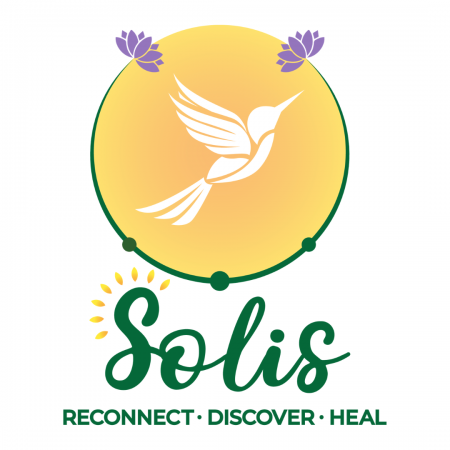
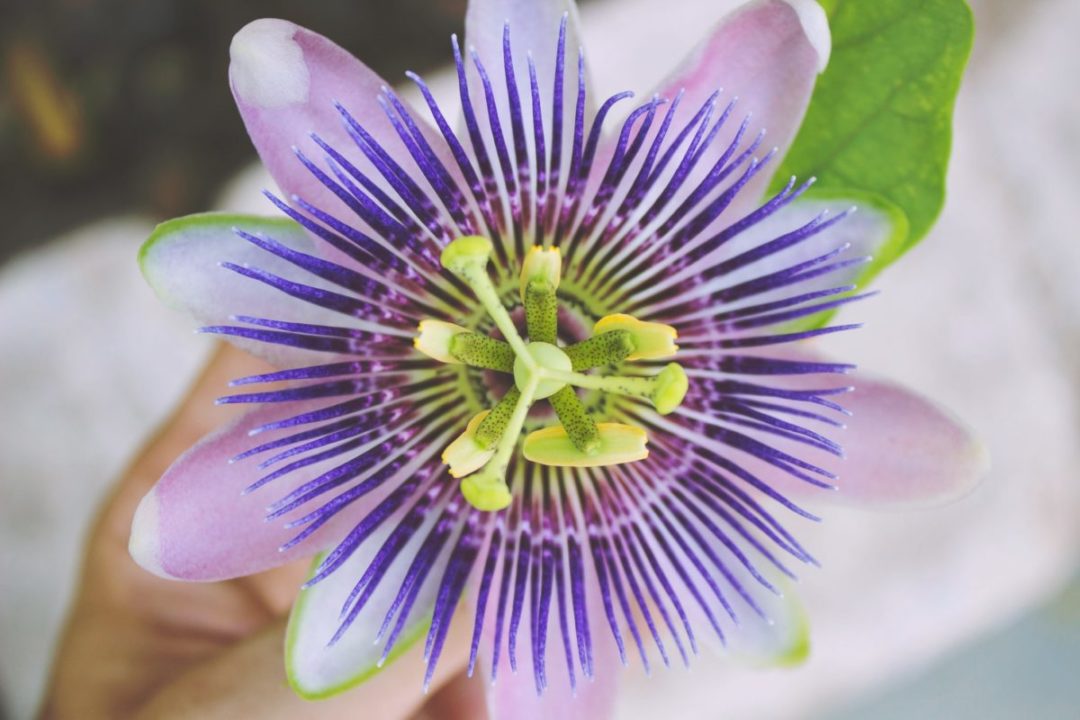


0 Comments